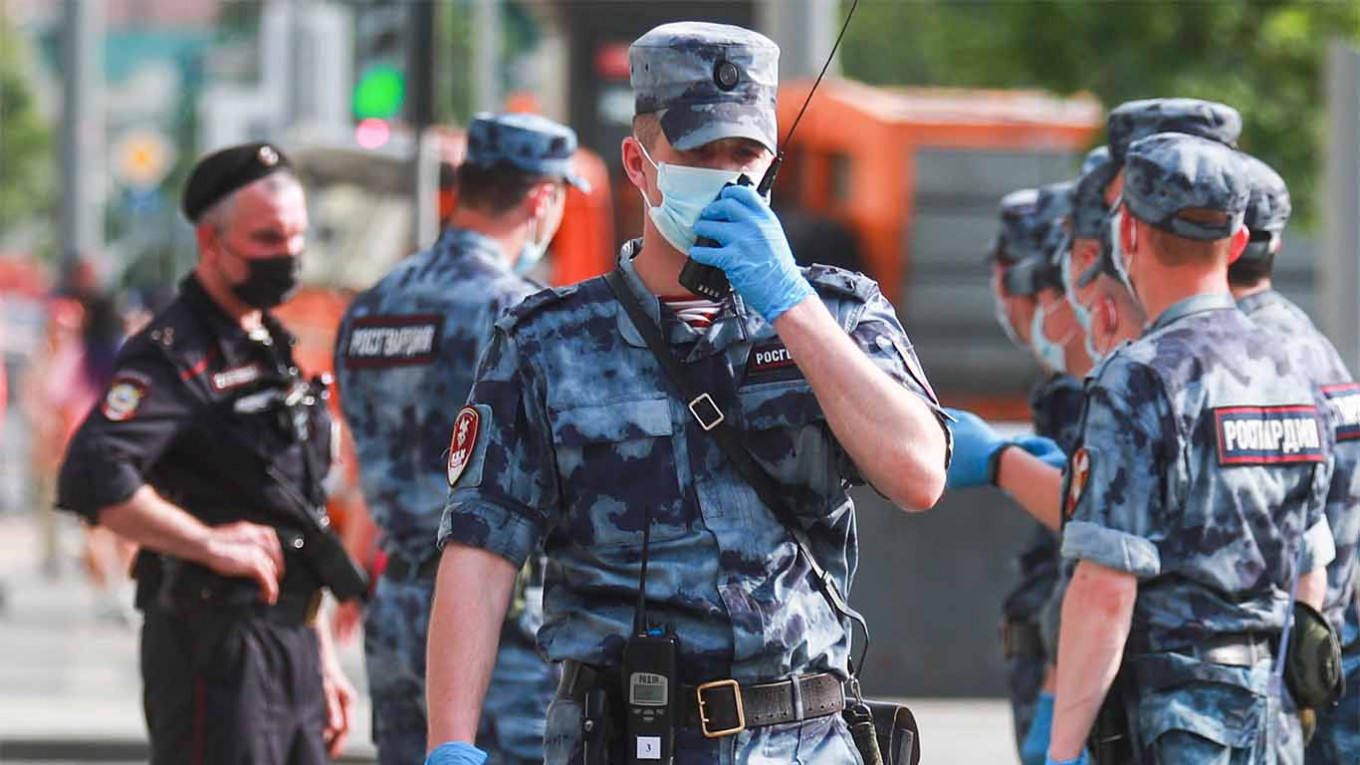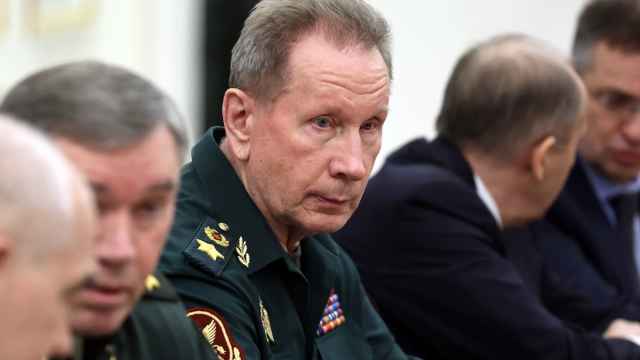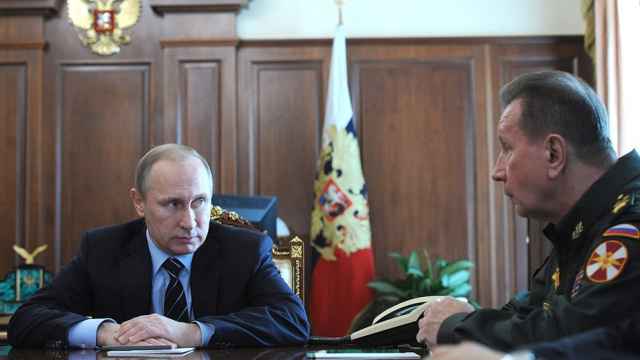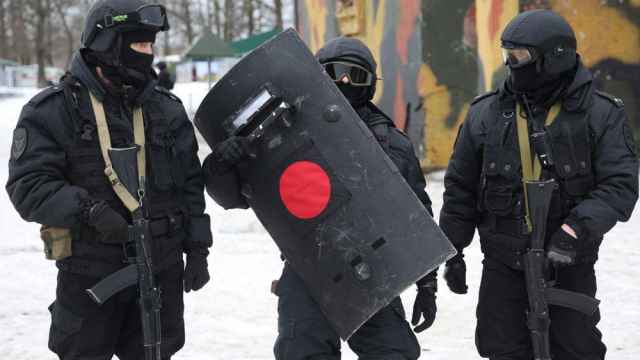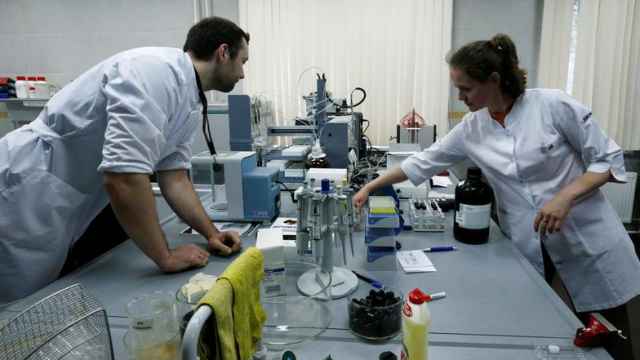President Vladimir Putin has created a new post in Russia’s National Guard to ensure ideological education and political unity amid questions over the country's return to once-abolished Soviet practices.
The Russian military has gained political influence in both domestic and foreign policy since the 2014 annexation of Crimea from Ukraine and renewed geopolitical tensions with the West. In 2018, Putin created a “military-patriotic” directorate inside the Russian Armed Forces in an apparent bid to secure the loyalty of Russia’s estimated 1 million soldiers.
Putin signed a decree Monday adding “military and political work” to a list of powers held by the Russian National Guard.
No further details of what that work entails were provided.
“We associate the proposals to create military-political bodies in the troops with the further development of [the troops'] moral and psychological support,” National Guard head Viktor Zolotov said in March, when he first announced the upcoming changes.
Putin created the National Guard, an internal military unit with around 340,000 troops, in 2016.
The Soviet army employed political commissars who taught soldiers the Marxist and Leninist doctrine and made sure they stayed loyal to the ruling Communist Party. The position underwent several name changes after 1918 but continued to act as the Soviet military’s ideological underpinning until the Soviet Union collapsed in 1991.
After Putin resurrected the “military-patriotic” directorate in the Russian army in 2018, observers raised questions whether he was positioning the country toward a gradual return to Soviet practices.
A Message from The Moscow Times:
Dear readers,
We are facing unprecedented challenges. Russia's Prosecutor General's Office has designated The Moscow Times as an "undesirable" organization, criminalizing our work and putting our staff at risk of prosecution. This follows our earlier unjust labeling as a "foreign agent."
These actions are direct attempts to silence independent journalism in Russia. The authorities claim our work "discredits the decisions of the Russian leadership." We see things differently: we strive to provide accurate, unbiased reporting on Russia.
We, the journalists of The Moscow Times, refuse to be silenced. But to continue our work, we need your help.
Your support, no matter how small, makes a world of difference. If you can, please support us monthly starting from just $2. It's quick to set up, and every contribution makes a significant impact.
By supporting The Moscow Times, you're defending open, independent journalism in the face of repression. Thank you for standing with us.
Remind me later.


